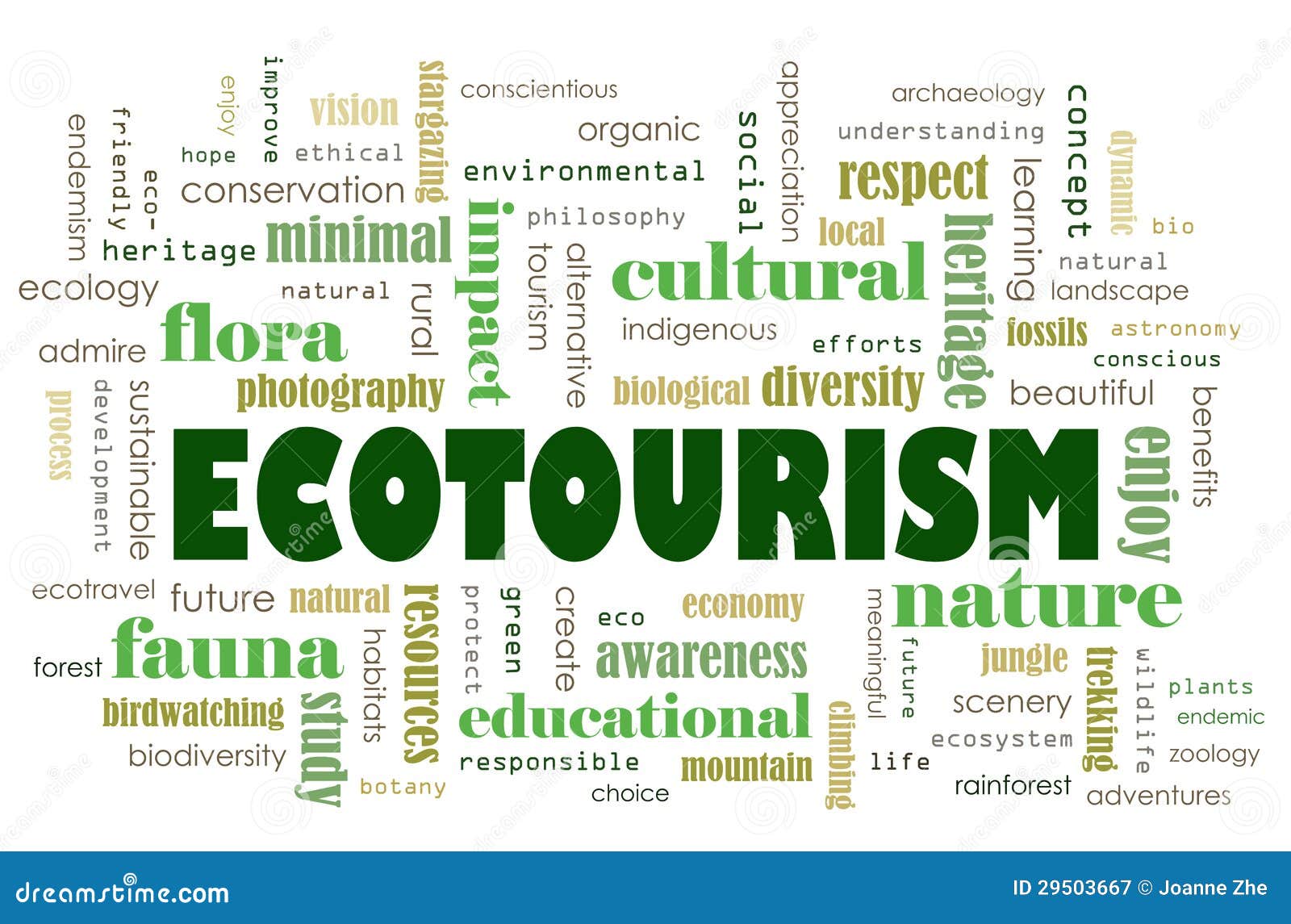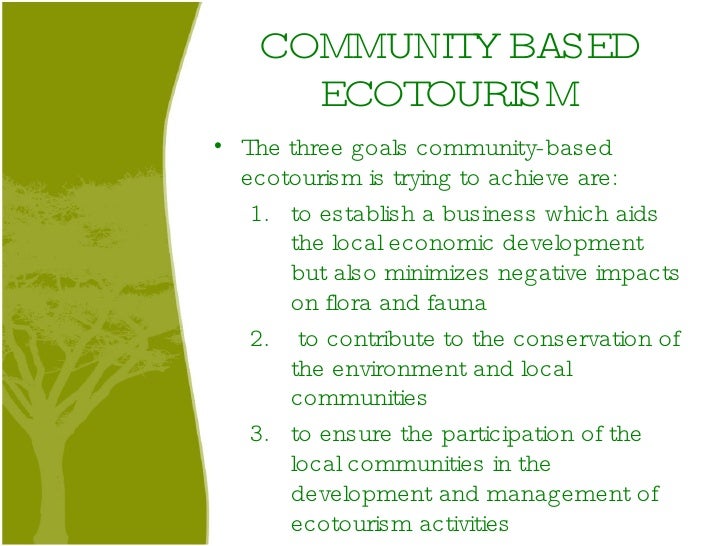Aims and objectives of ecotourism – Embarking on a journey into the realm of ecotourism, we uncover its fundamental aims and objectives, exploring how they shape the sustainable practices that define this responsible form of travel.
Ecotourism seeks to harmonize conservation, local communities, and tourism, fostering a delicate balance that safeguards natural and cultural heritage while promoting economic development.
Defining Ecotourism: Aims And Objectives Of Ecotourism

Ecotourism is a form of responsible tourism that focuses on conserving the environment and supporting sustainable practices.
It encompasses a set of principles and practices that aim to minimize negative impacts on the environment and promote the well-being of local communities.
Key Characteristics of Ecotourism, Aims and objectives of ecotourism
- Preservation of natural areas and biodiversity.
- Support for sustainable practices and local economies.
- Education and interpretation of the natural environment.
- Minimization of negative environmental impacts.
- Respect for local cultures and traditions.
Aims of Ecotourism

Ecotourism is a form of responsible tourism that aims to minimize negative impacts on the environment and local communities while promoting conservation and sustainable practices. The primary aims of ecotourism are to:
- Protect and conserve natural and cultural heritage
- Promote sustainable tourism practices
- Provide economic benefits to local communities
- Educate and raise awareness about environmental and cultural issues
These aims are essential for promoting sustainable tourism practices because they encourage responsible travel, support local economies, and foster environmental stewardship.
Protecting and Conserving Natural and Cultural Heritage
Ecotourism aims to protect and conserve natural and cultural heritage by minimizing negative impacts on the environment and promoting sustainable practices. This includes preserving biodiversity, protecting endangered species, and safeguarding cultural sites and traditions.
Promoting Sustainable Tourism Practices
Ecotourism promotes sustainable tourism practices by encouraging responsible travel, minimizing environmental impacts, and supporting local communities. This includes using eco-friendly transportation, staying in sustainable accommodations, and respecting local customs and traditions.
Providing Economic Benefits to Local Communities
Ecotourism can provide economic benefits to local communities by creating jobs, supporting local businesses, and promoting sustainable development. This helps to improve the livelihoods of local people and encourages them to protect their natural and cultural heritage.
Educating and Raising Awareness about Environmental and Cultural Issues
Ecotourism can educate and raise awareness about environmental and cultural issues by providing visitors with opportunities to learn about and experience the natural and cultural heritage of a destination. This can help to foster environmental stewardship and promote cross-cultural understanding.
Objectives of Ecotourism
Ecotourism aims to promote sustainable practices and conserve natural resources while providing economic benefits to local communities. Its objectives are as follows:
- Conservation of biodiversity:Protecting and preserving natural ecosystems and species, promoting responsible tourism practices that minimize environmental impact.
- Sustainable development:Promoting economic growth and development in local communities through tourism activities while maintaining ecological integrity.
- Education and awareness:Raising awareness about the importance of environmental conservation and promoting responsible travel practices among tourists.
- Empowerment of local communities:Involving local communities in tourism planning and management, ensuring that they benefit from tourism activities and have a say in decision-making.
- Cultural preservation:Preserving and promoting local cultures and traditions, fostering cultural exchange between tourists and local communities.
Examples of how these objectives are achieved in practice include:
- Conservation of biodiversity:Establishing protected areas, implementing responsible wildlife viewing practices, and promoting habitat restoration.
- Sustainable development:Creating tourism infrastructure that minimizes environmental impact, supporting local businesses, and investing in education and training for local communities.
- Education and awareness:Providing educational materials and guided tours that highlight the importance of conservation, encouraging responsible travel practices, and promoting respect for local cultures.
- Empowerment of local communities:Involving local communities in tourism planning and management, establishing community-owned and operated tourism businesses, and providing training and support for local entrepreneurs.
- Cultural preservation:Supporting traditional arts and crafts, promoting cultural events, and fostering cultural exchange between tourists and local communities.
By achieving these objectives, ecotourism can contribute to the conservation of natural resources, promote sustainable development, and foster cultural understanding while providing economic benefits to local communities.
Balancing Aims and Objectives

Balancing the aims and objectives of ecotourism is crucial to ensure its long-term success. Ecotourism initiatives must simultaneously promote conservation, support local communities, and provide visitors with an enriching experience.
Maintaining this balance requires careful planning and implementation. Conservation efforts should not compromise the economic benefits of ecotourism, while economic development must not harm the environment.
Prioritizing Conservation
Ecotourism should prioritize the preservation and restoration of natural ecosystems. This includes protecting biodiversity, controlling pollution, and managing resources sustainably.
Supporting Local Communities
Ecotourism should contribute to the economic and social well-being of local communities. This can involve creating employment opportunities, supporting local businesses, and promoting cultural exchange.
Providing Visitor Enrichment
Ecotourism should provide visitors with an immersive and educational experience. This includes offering opportunities for wildlife viewing, nature interpretation, and cultural immersion.
Challenges in Achieving Aims and Objectives

Achieving the aims and objectives of ecotourism poses various challenges that require innovative solutions and collaborative efforts.
One of the primary challenges is the balancing act between economic development and environmental conservation. Ecotourism seeks to generate income for local communities while preserving natural ecosystems, but finding the optimal balance can be a delicate task.
Overcoming Challenges
Overcoming these challenges requires a comprehensive approach that addresses both the economic and environmental aspects of ecotourism.
- Economic Diversification:Promoting alternative income sources for local communities reduces their reliance on tourism, mitigating potential negative impacts on the environment.
- Education and Awareness:Educating tourists and local communities about responsible ecotourism practices fosters a shared understanding of conservation goals.
- Certification and Standards:Establishing and adhering to recognized ecotourism certification standards ensures the credibility and sustainability of operations.
- Collaboration and Partnerships:Partnerships between tourism operators, conservation organizations, and local communities facilitate knowledge sharing, resource pooling, and effective management.
- Monitoring and Evaluation:Regular monitoring and evaluation of ecotourism impacts allows for adaptive management and timely adjustments to minimize environmental harm.
Final Thoughts

In conclusion, the aims and objectives of ecotourism serve as a guiding force, ensuring the preservation of our planet’s natural and cultural treasures while creating meaningful connections between travelers and local communities. By embracing these principles, we empower sustainable tourism practices that benefit both present and future generations.
FAQ Summary
What is the primary aim of ecotourism?
The primary aim of ecotourism is to promote sustainable tourism practices that minimize environmental impact, preserve natural and cultural heritage, and support local communities.
What are some specific objectives of ecotourism?
Specific objectives of ecotourism include protecting biodiversity, conserving natural resources, promoting cultural understanding, and generating economic benefits for local communities.
